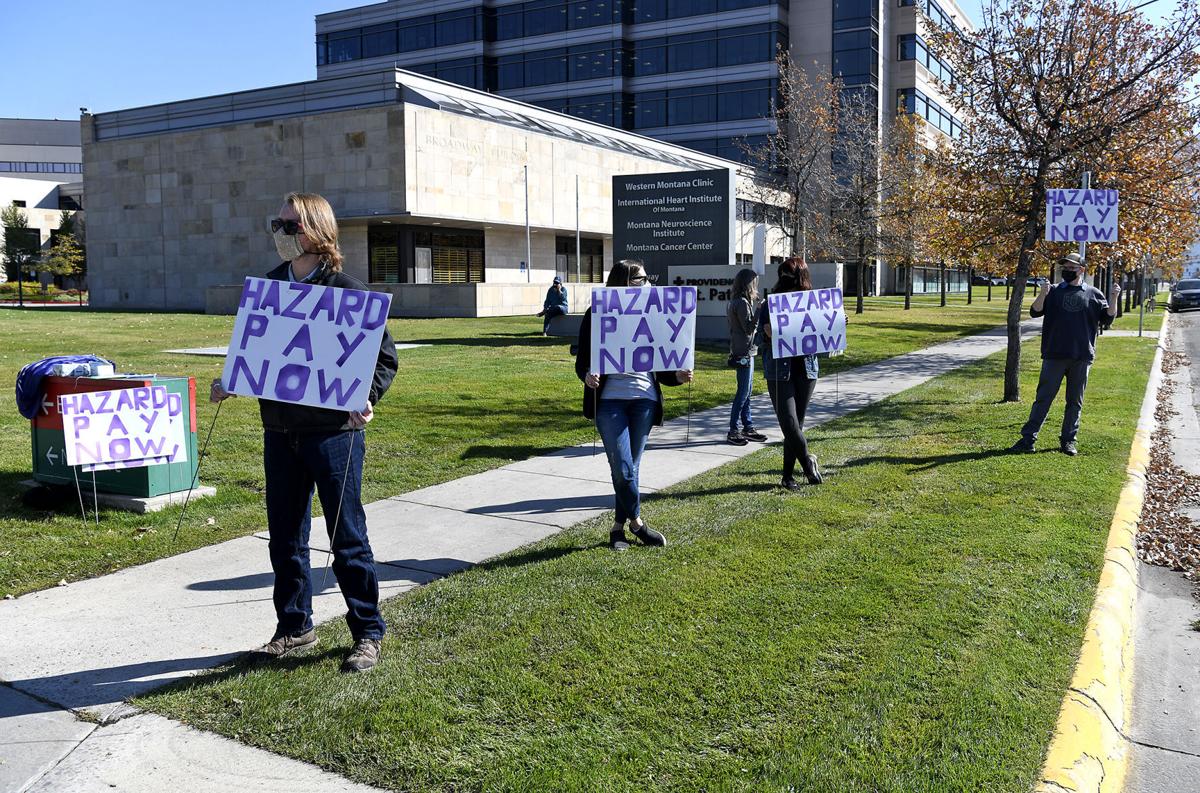“Caregivers for frail elders and people living with disabilities in Washington are concerned about the potential effects of more than a billion dollars in cuts to the state’s long-term care services.
To fill part of the shortfall caused by COVID-19, the Department of Health and Human Services has proposed cutting long-term care services by $1.1 billion for the 2021 through 2023 budget.
Vicki Bickford is an in-home caregiver with Service Employees International Union Local 775. She said her client already needs around-the-clock care, and could suffer under these cuts.
‘He doesn’t actually get authorized for the amount of care that he needs,’ said Bickford. ‘He shouldn’t be left alone. He can no longer get up or sit down without help – and he can’t, basically, do any functions that involve him getting out of bed without help.’”
Month: October 2020
“In the Pacific Northwest, lawmakers have acted to help defray the exorbitant costs of family caregiving. More needs to be done.
Most families cobble together caregiving arrangements for children, elders, and loved ones with disabilities through some mix of free care from relatives, modest home care options, or pricey institutional settings. Paying for these arrangements when necessary is one of the greatest trials facing American workers. The national caregiving crisis has been magnified by the COVID-19 pandemic and the weak federal Family and Medical Leave Act of 1993, a dubious bargain of limited, unpaid time off.
In the face of federal neglect, states have begun to step up to lighten the burden, offering assistance to families struggling with child care, elder care, and paid leave. But nowhere has the care infrastructure been built as comprehensively as in Washington state.”
“SEIU 775 said in a press release that ‘DSHS’s proposed 2021-2023 budget cuts $1.1 billion in long-term care services for the elderly and people with disabilities.’ The union said that would mean more than 10,000 seniors and people with disabilities would lose home care services, and that more than 2,800 ‘will be kicked out of the nursing home where they live.’
SEIU 775 also said 10,000 in-home caregivers would lose their jobs, and those who keep their full-time jobs would lose about $1,300 a year in wages and benefits. Shelly Hughes, a Bellingham nursing home worker and union member, told the committee: ‘The middle of the pandemic is the worst time’ for such cuts in the ‘already struggling nursing home industry.'”
“The 45,000 in-home and nursing home caregivers of SEIU 775 have always been on the front lines of health care. We’re the first ones to know if our clients are coughing or running a fever. We know when the person we care for seems dizzy, or when their appetite is off. We know first because we’re inside of their homes providing health care, preparing food, and cleaning surfaces, giving invaluable care to the most vulnerable people in our communities. We keep those who want to stay in their homes out of costly institutions, and care for those who require nursing home care to stay healthy.
Caregivers didn’t stop providing care during the coronavirus pandemic, despite a glaring lack of PPE in the first few months. Nelly, a caregiver in Yakima, lives with her client. When everyone in Nelly’s home, including Nelly, tested positive for COVID-19, she continued providing care and kept her vulnerable client out of the hospital.
Caregiving is essential. Yet it has been consistently devalued because of systemic racism and sexism. Like farm workers and domestic workers, caregivers were deliberately excluded from the worker protection laws created after the Great Depression. We were excluded because of who we are and what we look like—predominantly women, including black women, women of color and immigrants.
Caregivers had to fight to win basic standards like minimum wage, the right to a union, and even the right to protection from harassment and discrimination long after other workers won those rights.”
“Kristi Stacy, a local nursing home caregiver and union member, said her facility has struggled with turnover since the pandemic started, which has only been exacerbated as caregivers themselves are forced to isolate and quarantine with cases growing and close contacts being identified.
‘We’re already understaffed as it is, and now we’ve got more coworkers that are out because they’ve been tested for COVID,’ Stacy said. She also pointed to the likelihood of coming PPE shortages, similar to what health care facilities experienced in mass at the beginning of the pandemic.
‘We were asked to reuse our N95 masks. We also struggled in not getting medical grade gloves, and we were asked to use deli grade gloves. During a pandemic, this is unacceptable,’ Stacy said. ‘Montana has seen spikes in the last month and we don’t want to go through a PPE shortage again.'”
SEIU 775 caregivers across Montana came together, interviewed the people running for office in Montana, and are proud to endorse the following candidates for elected office.
Statewide Ballot Issues:
SEIU 775 caregivers support two 2020 ballot initiatives to legalize, regulate, and tax marijuana for adult use, which will create jobs and strengthen Montana’s economy. The Marijuana taxes collected will contribute to the general fund and special revenue accounts including long-term healthcare in our state.
Vote Yes on:
Constitutional Initiative 118 (CI-118) amends the Montana Constitution to allow the State to set the minimum legal age for purchasing, possessing, and consuming marijuana at 21.
Statutory Initiative 190 (SI-190) legalizes marijuana for adult use, establishes a system to regulate state-licensed marijuana businesses, and puts a 20% tax on non-medical marijuana sales.
Federal Candidates:
United States Senate
Steve Bullock
United States House of Representatives
Kathleen Williams
Statewide Candidates:
Governor
Mike Cooney
Attorney General
Raph Graybill
Secretary of State
Bryce Bennett
State Auditor
Shane Morigeau
Superintendent of Public Instruction
Melissa Romano


